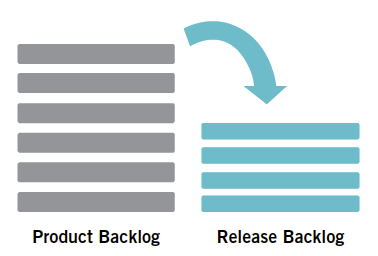Agile Release Planning

The main purpose of release planning is to commit to a plan with a view to delivering an increment of the product value.
Release planning is a collaborative effort which involves the following roles:
- Firstly, Scrum Master – Enables the meeting
- Secondly, Product owner – Represents a general view of the product backlog
- Thirdly, Delivery team or agile team – Issue insights into technical feasibility and dependencies stakeholders
Like every other thing, release planning requires certain things:
- A ranked product backlog managed by the product owner
- Moreover, input from the team about overall capabilities, known velocity, and technical impacts
- In addition, high-level vision, market, and business objectives
- Above all, an acknowledgment of whether there is a requirement of new product backlog items
Release Planning Checklist
- Where is your product owner? – Make sure that the person responsible for making priority decisions about big features is available. For example an analyst, product manager, or executive.
- Do you have a ranked backlog? – Five to fifteen high-level features the product owner aspires to include in this release. Further, write each one of them on an index card.
- How will you size your items? – Establish a common baseline for sizing. In other words, consider bringing a broad group of individuals representing various teams together. Further, make sure they have size a dozen or more product backlog items.
- Who is coming? – Everyone who has an impact by the release requires to be in this meeting to help develop the plan, identify dependencies and commit to the release.
- Plan for logistics – Create an agenda in advance. Moreover, consider the room size. Review the agenda beforehand with scrum masters or team leads.
- What about multiple teams? – It’s better to consider plane tickets if planning is only four times per year. On the other hand, assign a scribe for each distributed team to enter planning information from the whiteboard into your Agile project management tool.
- Do I need help? – This is an expensive and potentially large meeting. Therefore, it is advised to have an experienced facilitator to help you with such large group meetings before.
Materials Needed
- Posted motive and agenda
- In addition, organizing tools: Working agreements, parking lot, communication and logistics plan, etc.
- High touch: Flip chart and markers
- High tech: Projector, a computer to access needed data and tools, and a way to share the computer
Planning Data
- The outcome of previous iterations and releases
- Feedback from stakeholders on the product, market situation, and deadlines
- Action plans from prior release and retrospective
- Development and architecture statistics
Output
- Firstly, release plan and commitment
- Issues, concerns, and dependencies to keep an eye on
- Any new items for the release backlog
- Above all, suggestions to improve future planning meetings
Get certified and unlock more opportunities. Practice and Validate your skills to become a Certified Agile Testing Professional Now!

